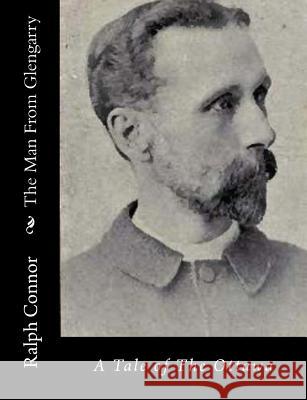The Man From Glengarry: A Tale of The Ottawa » książka
The Man From Glengarry: A Tale of The Ottawa
ISBN-13: 9781517162634 / Angielski / Miękka / 2015 / 296 str.
Excerpt from The Man From Glengarry: A Tale of the Ottawa
The solid forests of Glengarry have vanished, and with the forests the men who conquered them. The manner of life and the type of character to be seen in those early days have gone too, and forever. It is part of the purpose of this book to so picture these men and their times that they may not drop quite out of mind. The men are worth remembering. They carried the marks of their blood in their fierce passions, their courage, their loyalty; and of the forest in their patience, their resourcefulness, their self-reliance. But deeper than all, the mark that reached down to their hearts' core was that of their faith, for in them dwelt the fear of God. Their religion may have been narrow, but no narrower than the moulds of their lives. It was the biggest thing in them. It may have taken a somber hue from their gloomy forests, but by reason of a sweet, gracious presence dwelling among them it grew in grace and sweetness day by day.
In the Canada beyond the Lakes, where men are making empire, the sons of these Glengarry men are found. And there such men are needed. For not wealth, not enterprise, not energy, can build a nation into sure greatness, but men, and only men with the fear of God in their hearts, and with no other. And to make this clear is also a part of the purpose of this book.
About the Publisher
Forgotten Books publishes hundreds of thousands of rare and classic books. Find more at www.forgottenbooks.com
This book is a reproduction of an important historical work. Forgotten Books uses state-of-the-art technology to digitally reconstruct the work, preserving the original format whilst repairing imperfections present in the aged copy. In rare cases, an imperfection in the original, such as a blemish or missing page, may be replicated in our edition. We do, however, repair the vast majority of imperfections successfully; any imperfections that remain are intentionally left to preserve the state of such historical works.
Zawartość książki może nie spełniać oczekiwań – reklamacje nie obejmują treści, która mogła nie być redakcyjnie ani merytorycznie opracowana.











